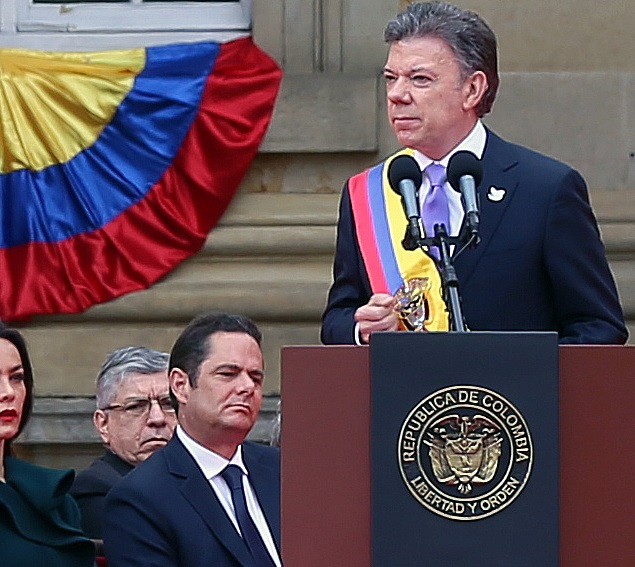Colombian President Wins Nobel Peace Prize
On October 7, the Nobel Committee honored Colombian President Juan Manuel Santos with the Nobel Peace Prize in light of his endeavors to secure a peace agreement with the Revolutionary Armed Forces of Colombia (FARC), despite the fact that this peace agreement was recently rejected by Colombian voters in a plebiscite. Santos, upon receiving the prize, dedicated it to “the millions of victims of this conflict, which we have suffered for more than 50 years.” His negotiating counterpart in FARC, leading commander Rodrigo Londoño, expressed similar views, saying that “this award will certainly contribute to the peace we so long for.”

Although the award affirms Santos’ diplomatic work in attaining peace, other pressing issues loom in light of the Colombian people’s rejection of this peace agreement between FARC and the government.
With the peace process grounded to a halt, the Colombian government faces new challenges. It must formulate a reformed peace agreement that appeals to both the citizens dissatisfied with the original accords as well as FARC itself, which favors the original agreement.
According to BBC, although a little more than half of Colombian voters were against the peace agreement, numerous citizens in favor of Santos’ original plan joined demonstrations in 14 cities. These demonstrators seek a speedy transition to peace and immediate reconciliation with the FARC insurgents.
However, Colombians who opposed the peace plan argue that its terms provide too much leniency for a brutal FARC insurgency implicated in drug trafficking, abductions, and other atrocities. They demand more stringent additions to the peace accords, including the blacklisting of convicted FARC militants, the payment of reparations, and longer imprisonment.
Both the Colombian government and FARC find it in their best interests to reach another compromise quickly, since a temporary ceasefire for both sides will expire by the end of October. If a compromise is not reached by this time, conflict is expected to resume. According to the Washington Office for Latin America, the uncertain peace process could compel renegade FARC guerrillas to defy the authority of higher commanders and assault Colombian troops.
The failure to pass the peace agreement, and the additional time that will be needed to reform it, could comprise another part of a cycle of intermittent warfare that has characterized the conflict since its beginning. Historically, the belligerents would call ceasefires to negotiate, but due to the frequency of these failures, they have been more prone to truces.
According to The Economist, President Santos’ administration has proposed different reforms to appease the disgruntled Colombian citizens opposed to its initial peace initiative. One reform involves granting full amnesties to minor members of the FARC, such as foot-soldiers, while prosecuting officers complicit in atrocities. These suggestions represent the start of a major revision process for both parties.
The Nobel Prize Committee that awarded President Santos with the Peace Prize maintained that “the fact that the majority of the voters said 'no' to the peace agreement does not necessarily mean that the peace process is dead. The referendum was not a vote for or against peace.”
